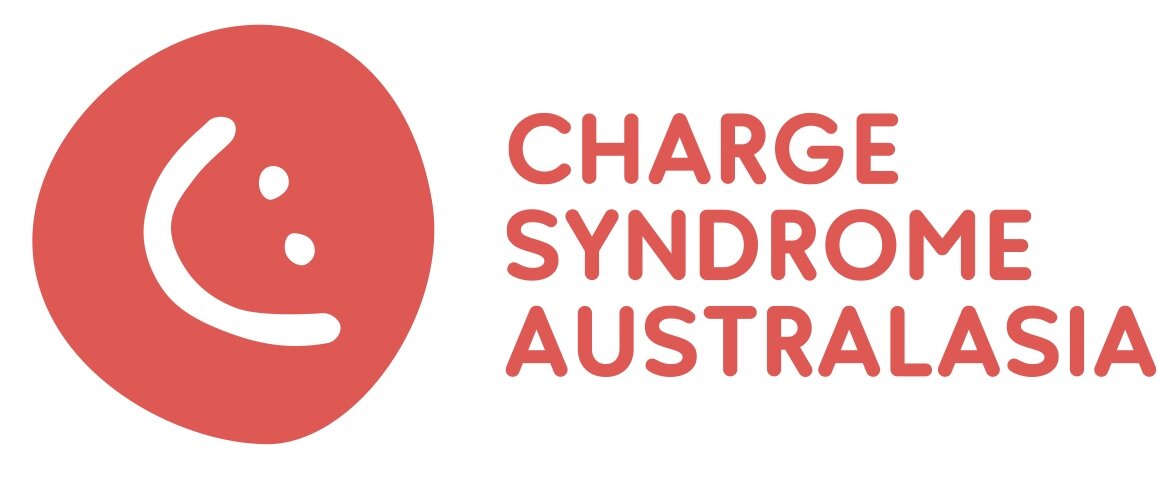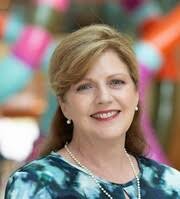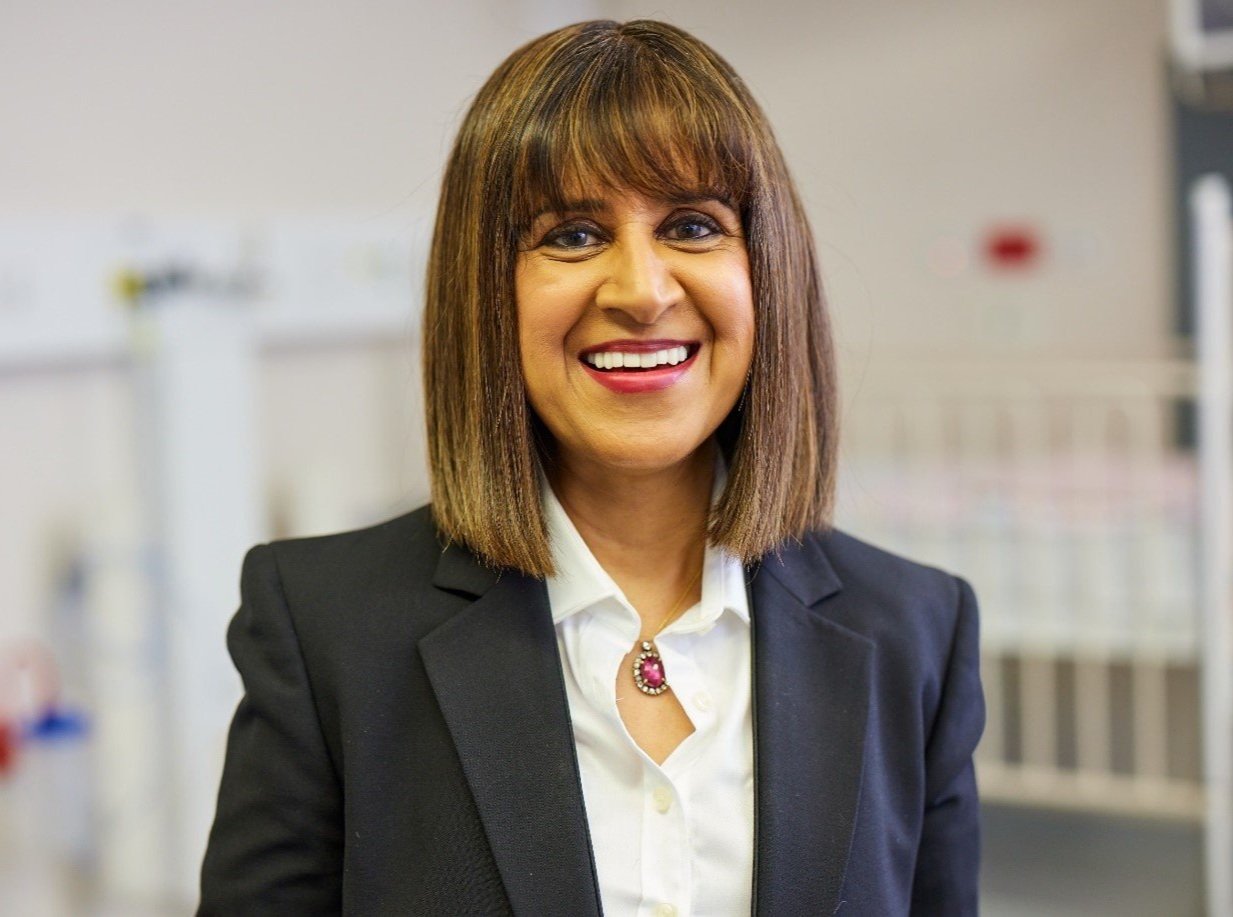CHARGE Syndrome Symposium:
Interdisciplinary care of a complex rare disease
Thursday 22 August 2024
8:30am-5pm
Randwick Health and Innovation Precinct
Sydney Childrens Hospital, Randwick
Like many rare and complex diseases, there are recognised knowledge gaps in CHARGE syndrome and a significant need for more research. Long term health supervision and management considerations are often complex, involving monitoring of multiple organ systems and requiring a comprehensive approach across the lifespan from an interdisciplinary team.
This full day program, featuring five leading experts on CHARGE syndrome and people with lived experience, provides a unique opportunity to build capacity in Australian health professionals by sharing knowledge, skills and experiences, to improve health outcomes and quality of life for this cohort.
This inaugural one day event is proudly hosted by CHARGE Syndrome Australasia, with the support of Sydney Children's Hospital Network. CHARGE Syndrome Australasia, the peak body, is a voluntary, non-profit organisation, run by people with lived experience. We provide information, resources and support to families and raise awareness in the community.
About the symposium
Healthcare clinicians, professionals and others who support people with complex, rare diseases or multi-sensory impairments, such as CHARGE syndrome, or patients with gut and motility issues, CHD7 disorder, cranial nerve dysfunction, multi-system impairments, deafblindness.
Who should attend?
Speakers
The program features international and local speakers with extensive knowledge, skills and experience in CHARGE syndrome.
Accessibility
Platform interpreters (Auslan) will be provided (delegates to provide their own interpreters if accessing platform interpreters is challenging).
This event will be recorded but not live streamed. Registered ticket holders will have access to the recordings for 12 months.
For any questions or assistance, please email hello@jemevents.com.au
Program
Session 1
Interdisciplinary Care: lived experience
Speaker: Person with lived experience of CHARGE syndrome
-
The extensive clinical spectrum of a complex multi-system disorder requiring interdisciplinary care across the lifespan. This presentation will give you a broad understanding of CHARGE syndrome and the multitude of healthcare professionals required to care for this population.
CHARGE syndrome is an autosomal dominant genetic disorder affecting CHD7 which can be seen clinically as a cranial nerve anomaly syndrome. The CHARGE syndrome checklist (Trider C-L, Arra-Robar A, van Ravenswaaij-Arts C, Blake K. 2017) will be used to discuss health supervision across the lifespan. Topics will include a brief overview of CHARGE syndrome, constipation, microbiome, postural orthostatic tachycardia syndrome (POTS), the vagus nerve and anesthesia risks. The hidden features of CHARGE syndrome can be relevant to many individuals with neuro diversity i.e., autism and individuals with chronic medical conditions i.e. hypermobility syndromes. You will be able to transfer the knowledge gained towards some of your more complex patients and clients, as well as ideas for research opportunities.
Website: Dr Kim Blake
Speaker: Dr Kim Blake (Paediatrician, Canada)
Panel: Interdisciplinary Care in Gastroenterology
Dr Kim Blake (Canada), Dr Usha Krishnan (Paediatric Gastroenterologist, NSW)
Session 2
Speaker: A/Prof Kelly Weir (Speech Pathologist, VIC)
-
Communication and language development are fundamental for self-determination and forming relationships with others. Children with CHARGE syndrome experience barriers in the developmental transitions establishing intentional communication and adopting symbolic means to access shared language. It is documented that 60% of CHARGE children achieve the use of shared symbolic communication (using words, signs or picture symbols to express themselves) (Thelin and Swanson, 2006), however, not all continue to establish full language and self-expression within their communities.
When such fundamental challenges with communication exist, it is not unsurprising or uncommon that children and young people find other ways to get a message across, and require sensitive communication partners in understanding, responding, and facilitating communication. Teams supporting children and young people need an informed understanding of the multiple systems involved to appreciate how the underlying mechanisms impact on communication and language development and allow them to plan intervention and effective support. There is a recognised role for speech language pathologists to support CHARGE children over the lifetime (Trider et al, 2017). This session will explore themes relating to Early Intervention, planning accessible strategies based on strengths-based approach and supporting clinicians to provide appropriate early intervention and where to seek advice and support.
Learning outcomes:
Identify the challenges in language and communication development experienced by children with CHARGE syndrome.
Consider accessibility in interventions based on individual hearing/vision/communication profiles within a total/inclusive communication framework.
Explore interpretation of communication and behaviour and how these relate to other diagnosis.
Describe the importance of joined up Early Intervention and the potential for long term impact.
Speaker: Steve Rose (Speech & Language Therapist, UK)
Feeding and language: lived experience
Speaker: Person with lived experience of CHARGE syndrome
Session 3
-
Although vestibular dysfunction, for many reasons, is very common in the population of children with CHARGE syndrome (and also in the entire population of children with multi sensory impairment) there is little understanding of the vestibular sense, where it is located, how it works, and the functions that it serves. It is commonly referred to as the “balance” sense, even though it is only one component in the development of effective balance, but it does have far-reaching and crucially important impact on all areas of development. Difficulties with attention are often compounded by the lack of body awareness that results from significant vestibular dysfunction, so the more effectively we can help children know where their bodies are the more likely we are to gain their attention. Observational assessment data from the field of CHARGE syndrome, including photographs, will be presented to demonstrate probable outcomes of vestibular dysfunction as seen in characteristic postures, movement patterns, and self-stimulation behaviors in this population. The presentation will conclude with a very brief overview of possible strategies to help ameliorate the outcomes of congenital vestibular dysfunction and so promote more effective functioning, improved attention, and better educational progress.
Participants will be able to:
Understand how the vestibular and proprioceptive senses work and the purposes that they serve.
Interpret the behaviors seen in children with multi sensory impairments in terms of the sensory stimulation that they provide based upon close observational assessment.
Gain an insight into how the senses interact to facilitate effective functioning in learners who have dual sensory impairment with complex needs.
Use simple adaptations to positioning, physical support, pacing, sequencing of activities, and play that can facilitate improved functioning and availability for learning.
Speaker: David Brown (Deafblind Educational Specialist, USA)
-
Unusual behavior is often associated with genetic syndromes, and may constitute a behavioral phenotype. In contrast to providing a psychiatric diagnosis, a behavioral phenotype describes what is unique to the behavior associated with different syndromes. While behaviors in CHARGE are as complex and variable as other aspects of the syndrome, there are some commonalities that raise the question of common sources for these behaviors. Pain, sensory issues, and anxiety may impact the behavior of individuals with CHARGE syndrome, and the development of self-regulation skills might help to mitigate some of the behaviors.
Speaker: Prof Timothy Hartshorne (Psychologist, USA)
Session 4
Adulthood challenges and barriers: lived experience.
Speaker: Person with lived experience of CHARGE syndrome
-
Self-report of pain remains our standard for pain identification and remediation, but how do you care for a client when they are unable to self-report their pain experience? What behaviors may be indicative of pain or discomfort? This is a common concern for persons with CHARGE syndrome who may have very limited functional or vocal communication, but it is also true for a number of other diagnoses including developmental delays, Down Syndrome, Autism Spectrum Disorder, etc. This presentation will present the pain experience in CHARGE, common behavioral concerns that may develop from acute or chronic pain, and tools to use to help identify the pain experience.
Speaker: A/Prof Kasee Stratton-Gadke (Psychologist, USA)
Healthcare in adults with CHARGE syndrome and current research
Speaker: Dr Kim Blake (Paediatrician, Canada)
Session 5
Panel - Open questions
Speaker: All
Speakers
Professor Kim Blake
Paediatrician, Halifax, Canada
Dr. Kim Blake is a professor of Pediatrics at Dalhousie University in Nova Scotia, Canada. She has been researching in CHARGE syndrome over the last 35 years and has published extensively. She has answered research questions concerning post-operative airway events, sleep apnea, bone health, cranial nerve abnormalities and gastrointestinal issues. In the last 10 years Dr. Blake has partnered with Dr. Jason Berman and they have developed a zebra-fish-model of CHARGE syndrome to answer further research questions. With this model they have been able to understand in more detail the Vagus Nerve in CHARGE syndrome which has influenced our clinical knowledge of poor gut motility. A zebra-fish-model has been used for research to support clinical findings of adverse anaesthesia events in individuals with CHARGE syndrome. Given the increased risk following anesthesia, individuals with CHARGE syndrome should have combined procedures where possible in one anesthesia. Dr. Blake developed the CHARGE syndrome checklist for families, individuals, and professionals to use as a clinical guide and a teaching tool for managing CHARGE syndrome.
Trider CL, Arra-Robar A, van Ravenswaaij-Arts C, Blake K. Developing a CHARGE syndrome checklist: Health supervision across the lifespan (from head to toe). Am J Med Genet A. 2017 Mar;173(3):684-691. doi: 10.1002/ajmg.a.38085. Epub 2017 Feb 4. PMID: 28160409.
Professor Tim Hartshorne
Professor of Psychology, Central Michigan University, USA
Prof Tim Hartshorne, PhD, is a Professor of Psychology Emeritus at Central Michigan University, specialized in school psychology. has been interested in CHARGE syndrome since the birth of his son with CHARGE in 1989. When it became clear in the mid 1990’s that many children with CHARGE develop severe behavioral issues, he decided to refocus his research on this problem. In addition to his publications on CHARGE, Tim has been a frequent presenter at conferences in many countries and has presented at every U.S. conference since the first one in 1993. In 2005 he was awarded the Stars in CHARGE by the CHARGE Syndrome Foundation.
Hartshorne TS, Stratton KK, Brown D, Madhavan-Brown S, Schmittel MC. Behavior in CHARGE syndrome. Am J Med Genet C Semin Med Genet. 2017 Dec;175(4):431-438. doi: 10.1002/ajmg.c.31588. Epub 2017 Oct 30. PMID: 29082623.
David Brown
Deafblind Educational Specialist, California, USA
David Brown is a deafblind educational specialist who has been working with children with CHARGE syndrome since 1983. In the United Kingdom he was the Head of Family & Children Services for Sense. He moved to California in 2000 to work with the state deafblind project, based in San Francisco. He retired in 2014 but still works extensively as a freelance educational consultant. He has given presentations about CHARGE syndrome in 14 different countries, and in 24 states in the US. His articles about CHARGE syndrome have been translated into at least 12 different languages. In 2005 David was given the Star in CHARGE award by the CHARGE Syndrome Foundation, and in 2013 he received the Lifetime Achievement Award from Deafblind International.
Brown D. CHARGE syndrome “behaviors”: Challenges or adaptations? https://doi.org/10.1002/ajmg.a.30547
Associate Professor Kasee Stratton-Gadke
Psychologist, Mississippi State University, USA
Dr. Kasee Stratton-Gadke is a licensed psychologist, nationally certified school psychologist, and Associate Professor in School Psychology at Mississippi State University. Kasee currently serves as the Executive Director of the Mississippi institute on Disabilities, serving over the T.K. Martin Center for Technology and Disability and the Autism and Developmental Disabilities Clinic. Kasee holds a doctorate in School Psychology from Central Michigan University. She completed a doctoral and post-doctoral fellowship at Johns Hopkins School of Medicine and the Kennedy Krieger Institute in Baltimore, Maryland. Kasee directs the Bulldog CHARGE Syndrome Research Lab. She has a nearly 20-year background researching CHARGE Syndrome with a specific focus on behavioral concerns for all ages and adult issues. Her clinical and research background primarily consists of clients with developmental delays, Autism, and rare genetic conditions. She has presented at many international, national, and local conferences on her work.
Hartshorne TS, Stratton KK, Brown D, Madhavan-Brown S, Schmittel MC. Behavior in CHARGE syndrome. Am J Med Genet C Semin Med Genet. 2017 Dec;175(4):431-438. doi: 10.1002/ajmg.c.31588. Epub 2017 Oct 30. PMID: 29082623.
Salem-Hartshorne, N, Schmittel, MC, Stratton, KK. Changes Over the Life Cycle. CHARGE Syndrome. Second Edition. Hartshorne, T, Hefner, MA, Blake, KD. 2021. ISBN13: 978-1-63550-290-9.
Steve Rose
Speech and Language Therapist and Deafblind Consultant - Vision Australia, Victoria.
Steve Rose is a Certified Practicing Speech Pathologist based at Vision Australia in Melbourne, with experience of working in the deafblind field for over 25 years. He recently moved from the UK, having previously worked in the Wolfson Neurodisability Team, Great Ormond Street Hospital, as well as in independent practice, and for the deafblind charity, Sense; and has worked with children with CHARGE syndrome in all these roles. He has established skills in the engagement, assessment and management of children and young people with profound and multiple disabilities, relating to sensory impairment and associated conditions. This includes deafblindness, cerebral palsy, autism, and other rare diseases. Steve is passionate about developing evidence-based practices focusing on parent-child interaction, tactile communication, and early intervention. He is a national advisor (deafblindness) for Royal College of Speech and Language Therapists and an active collaborator in national and international groups focusing on deafblindness, tactile language and cognition.
Deuce, G, Rose, S. Sign Acquisition in children who are deafblind. In Grove, N. and Launonen, K. (Eds) Manual Sign Acquisition in children with Developmental Disabilities. Nova Publishers: USA. 2019.
Associate Professor Kelly Weir
Speech Pathologist, Royal Childrens Hospital, Victoria.
Associate Professor Weir is the Director of Allied Health Research at The Royal Children’s Hospital Melbourne, and Associate Professor (Speech Pathology) at The University of Melbourne. She is a certified practicing speech pathologist with extensive clinical paediatric dysphagia practice in quaternary paediatric hospitals. Kelly specialises and researches in the area of paediatric dysphagia (paediatric feeding disorder), aspiration-related respiratory disease, paediatric and neonatal intensive/acute care management, paediatric tracheostomy, dysphagia in children with disability and paediatric palliative care; and is taking on PhD candidates in these areas. She is an international presenter on paediatric dysphagia, and regularly supports paediatric dysphagia education for low resource countries. At present, Kelly is involved in a number of research projects including investigating the use of cervical auscultation to detect aspiration in neonates, oral feeding and aspiration risk for infants receiving high flow nasal cannula respiratory support, oropharyngeal dysphagia in children with cerebral palsy or disability, and paediatric videofluoroscopy.
Dr Usha Krishnan
Paediatric Gastroenterologist, School of Clinical Medicine, UNSW, NSW
Dr Usha Krishnan is a Senior Lecturer with the School of Women's & Children's Health. She is also the director of the only paediatric motility service and dedicated multidisciplinary oesophageal atresia-tracheoesophageal fistula clinic in the state. Her research interests lies in childhood motility disorders, functional gastrointestinal disorders, gastroesophageal reflux disease and reflux aspiration, growth and nutrition, eosinophilic esophagitis, gut microbiome and oesophageal atresia.
TICKETS
Professional Tickets
| Early Bird | |
| Professional (single ticket) | $350 |
| Professional Group Rate (2+ tickets) | $300 |
| Student | $100 |
| Full Rate | |
| Professional (single ticket) | $400 |
| Professional Group Rate (2+ tickets) | $350 |
| Student | $150 |
Family Tickets
| Early Bird | |
| Adult (18+) | $80 |
| Child (under 18) | $30 |
| Full Rate | |
| Adult (18+) | $100 |
| Child (under 18) | $40 |







